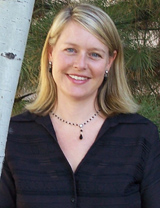Faculty Member Steps it Up in Areas Concerning Community

The University of Utah is known for many things: its top-notch academics, incredible athletics, and its world-renowned professors. So with that, it’s nice to acknowledge some of these professors for the incredible job they do each and every day. Marissa Diener, Associate Professor and Director of Graduate Studies for Human Development & Social Policy, is one professor who continually pushes the bar for excellence.
Diener first came to the University of Utah in 1996 with a Ph.D. in developmental psychology. Since then, she has served as the Borchard Fellow, was a faculty chair for the service-learning class committee, conducted community-based research with a number of undergraduate and graduate students, and also put together community outreach workshops for primarily the immigrant and refugee populations. She has also taught a variety of courses including parent-child relationships, child development, as well as a course called “Parenting Around the World” that consists of examining the ways people raise their children and poses the question of whether parenting is culturally constructed or if there are universal formats that all parents tend to follow. In 2010, Diener’s outstanding teaching was recognized when she was awarded the University of Utah’s Distinguished Teaching Award.
Diener’s interest in developmental psychology has been geared towards children’s social emotional development, parenting, and parent-child relationships. Her research involves the interaction between parents and their children and uses a variety of methods, including behavioral observations, self-report, interviews and informant reports. In years past, she has researched contextual correlations between mother-child attachment security. Currently, she is examining relationships among parents’ marital interactions, children’s emotion regulation strategies and relationships with mothers and fathers, and children’s social competence. When asked about why she feels her research is beneficial, she says, ”I hope that it will improve people’s lives, help the world gain a better understanding, and ultimately help families.”
Diener says when it comes to what benefits one might gain from interdisciplinary research, it’s a no brainer. “It is what I can think of on my own vs. other people’s different ideas and perspectives,” she states. Diener has worked alongside a number of other professors here at the U, including Family & Consumer Studies professor Russ Isabella. Their research included looking at family interaction, parent-child relationships and outcomes with regards to children’s self esteem, confidence, and perceptions of self. Most recently, Diener’s interdisciplinary research has been with Family and Consumer Studies associate professor Cheryl Wright on the “SketchUp” program that has been gaining a lot of media attention in various publications. The project has been involved in helping kids with autism develop work skills and opportunities for social engagement while using a Google application that was originally meant for designers, architects, and animators to help draw design mock ups. Diener says, “We were surprised by this unexpected outcome. We were initially interested in skill development with the program, but it has been great to see it take off in this direction.”
Not only has Diener worked with numerous professors, but she has also worked with a variety undergraduate and graduate students . The graduate students are interdisciplinary and come from a variety of backgrounds. Many of them go onto PhD programs and work for the community and nonprofit organizations.“I try to involve as many students as I can in the research that I do because it’s good for them to learn about the process. It also gives them needed experience and an ability to create business relationships that they might possibly use in the future,” states Diener.
Since she has been at the U, Diener has become very well acquainted with the Bennion Center on campus and has worked closely with the group for a number of years. As to how she got involved with the center, Diener explains that after an undergraduate student had asked her to be supervisor for a service learning project that they were doing with the Bennion Center, she decided to look into it for herself as a potential to enrich her classes. “They were really great at helping me put together and organize a service learning class for my students. It’s kind of hard to learn about child development without seeing an actual child. The service learning was a way to give students the experience they needed.” Recently, she was acknowledged for all of her hard work with the Center and was given the University of Utah Distinguished Service Award in March of this year. When asked how this made her feel, she described it in one word: humbling. “I know all the work that my colleagues are doing, and the amount of service they’re doing, and I think they all deserve the award,” she says.
Diener belongs to a number of different organizations including the Task Force for Community Engagement, where she worked on a committee through the Bennion Center to get the Carnegie Designation. She is also a part of the Youth and Family Development Partnership that works with University Neighborhood Partners and connects them with research knowledge and faculty expertise, creating a kind of synergy among them.
When asked what continually inspires her to keep up her work in the community, she doesn’t hesitate to say, “The people are my favorite part of what I do. I like being able to help those that need it.” As far as advice for others who want to get involved, she says, “Get yourself out there and talk to people. There are so many avenues of engagement where you can build relationships with other people. There’s no end to the need, and no end to the opportunities, and everyone can be involved in something that interests them.”
Marissa Diener is one professor who doesn’t like to “toot her own horn.” But with all that she has accomplished, she has a lot of room to boast. Still, she remains humble about the community research, service, and teaching that she has done over the years.
